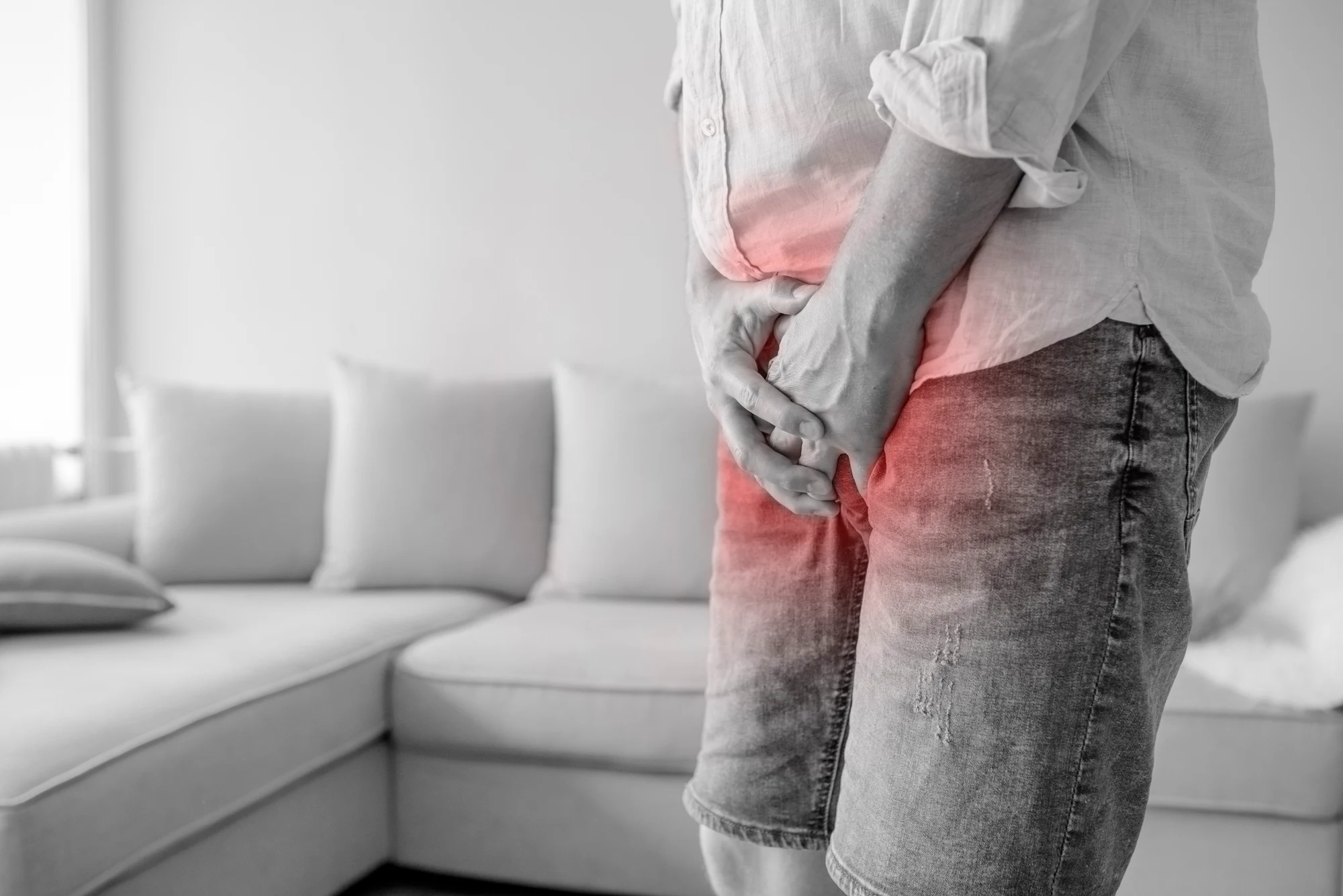If you're a man over 50, you might be familiar with the challenges of an enlarged prostate. This walnut-shaped gland near your bladder tends to grow as you age, causing issues like a weak urine stream, trouble emptying your bladder, and frequent bathroom trips.
If you experience these symptoms, it's important to consult your doctor for proper evaluation. However, there are some simple changes you can make to ease urinary problems:
- Avoid drinking fluids 1-2 hours before bedtime.
- Limit fluid intake before going out or starting a journey.
- Urinate as soon as you feel the need.
- Follow a timed schedule for bathroom visits, even if you don't feel the urge.
- Take your time while urinating to empty your bladder completely, reducing the need for frequent trips.
It's also essential to avoid over-the-counter drugs like antihistamines and decongestants, as they can further slow your urine stream and hinder bladder emptying.
If you want to learn more about benign prostatic hyperplasia (BPH), its causes, symptoms, and treatments, check out "Living Better with Benign Prostatic Hyperplasia," an online guide from Harvard Medical School.
If constipation becomes chronic, stop playing the laxative roulette wheel. Examine with your doctor.
Occasional irregularity is unavoidable, but you can reduce it with a few simple methods. You should consume a fiber-rich diet, drink plenty of water, and stay physically active.
When it comes to constipation, however, the ideal laxative is the gentlest and safest alternative, such as a bulk-forming laxative. If laxatives do not work, seek assistance. If you require laxatives on a regular basis, you should consult your doctor.
How do stool softeners function?
Stool softeners soften stools, making them easier to pass. They are commonly used before bedtime and come in capsule, tablet, liquid, or syrup form. Take stool softeners exactly as instructed. Do not take more or less of it or take it more frequently than your doctor has suggested.
Laxatives that create bulk are the first choice.
Bulk-forming laxatives attract water into the stool, softening it and making it easier to pass. However, don't expect immediate relief; these can take anywhere from a half-day to several days to offer relief. They are suitable for daily use. They contain a variety of substances, and you may need to test more than one to find one that works for you while causing minimal side effects such as flatulence and bloating. They could be sold as laxatives or fiber supplements.
Owning a dog offers a number of health benefits, including companionship, unconditional affection, and the increased physical activity needed to play with and walk your pet. However, exercise caution when walking Fido on a regular basis. A study that linked dog walking to a dramatic increase in injuries among those holding a puppy's leash was published online on April 14, 2023, by Medicine & Science in Sports & Exercise. Nearly 423,000 patients (average age 53) who visited emergency rooms after being pulled or tripped by a leash were found when researchers examined data from a national health database between 2001 and 2020. Over the course of the study, the yearly injury rate climbed by more than four times, from around 7,200 in 2001 to about 32,000 in 2020.
18 comments
Socializing has been linked to a lower chance of dying young, among other health benefits. However, how much socialization might prolong one's life? On March 6, 2023, the Journal of Epidemiology and Community Health published a sizable Chinese study online that suggests—possibly not at all. Researchers assessed the well-being, way of life, and self-reported social engagement of almost 28,000 individuals (average age: 89) whose survival was monitored for a mean of five years or until they passed away. People lived longer during the first five years of life, the more socialized they were. The people who socialized daily, weekly, monthly, or infrequently all lived longer than the previous group.
What is and isn't normal? Learn to recognize this dangerous mental health condition.
Hoarding disorder: what is it?
An incapacity to part with some possessions to the point of unhealthy accumulation is the hallmark of hoarding disorder, a mental health illness.
Even though the goods being hoarded may seem insignificant to others—old clothing, boxes, documents, junk mail, or even expired food or trash—the individual hoarding the stuff is certain that they will come in handy at some point. The thought of leaving them behind is deeply upsetting. Over time, items accumulate in the house to create mountains of disorderly clutter that clog halls and rooms, hinder daily activities, and endanger safety.
Dr. Stephanie Collier, a psychiatrist at McLean Hospital, which is connected with Harvard, says, "There might be clutter blocking the stove so you can't prepare meals, or blocking the door so you can't get to work or get out in an emergency."
What makes someone hoard?
The etiology of hoarding disorder is unknown. Although it usually appears in adolescence, hoarding may also manifest in later life because of its correlation with certain mental health issues. These include attention deficit hyperactivity disorder (ADHD), anxiety, dementia, and obsessive-compulsive disorder (OCD). Sometimes certain situations' characteristics lead to hoarding behavior.
People suffering from anxiety disorders, for instance, may worry excessively that they won't have enough of a specific item. They feel more in control when they have a larger supply, according to Dr. Collier. "There may be persistent notions in the minds of OCD sufferers concerning the quantity of stuff they need. Despite their desire not to, individuals are constantly driven to keep the items."
Additional examples: Individuals with ADHD may struggle to decide what should be thrown out first. Additionally, because they can't remember if they need certain things, like bills, people with cognitive impairment may be reluctant to part with them.
Subscribe to:
Posts (Atom)




